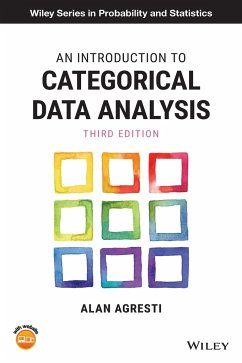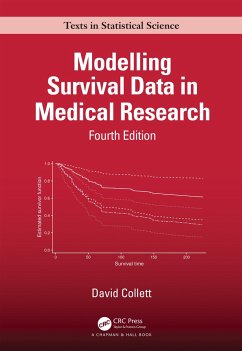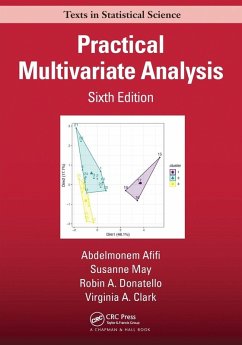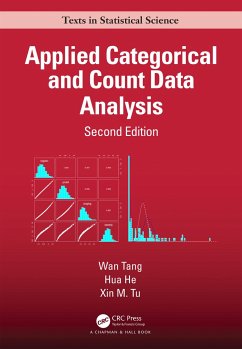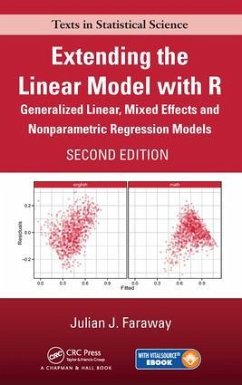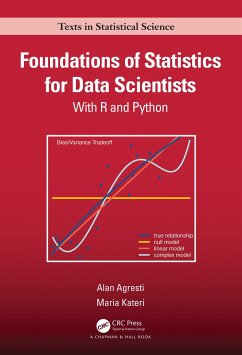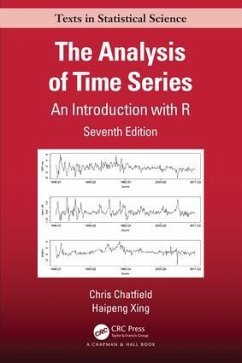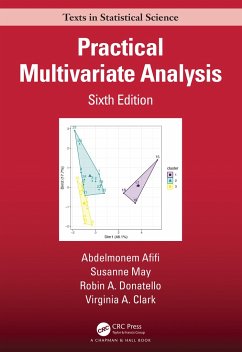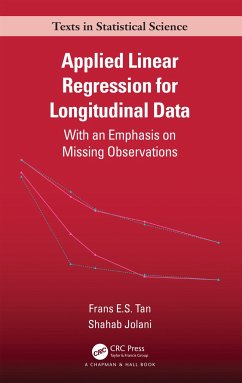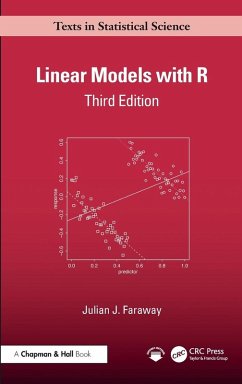
Analysis of Categorical Data with R
Versandkostenfrei!
Versandfertig in 6-10 Tagen
88,99 €
inkl. MwSt.
Weitere Ausgaben:

PAYBACK Punkte
44 °P sammeln!
Analysis of Categorical Data with R, Second Edition presents a modern account of categorical data analysis using the R software environment. It covers recent techniques of model building and assessment for binary, multicategory, and count response variables and discusses fundamentals, such as odds ratio and probability estimation. The authors give detailed advice and guidelines on which procedures to use and why to use them.The second edition is a substantial update of the first based on the authors' experiences of teaching from the book for nearly a decade. The book is organized as before, bu...
Analysis of Categorical Data with R, Second Edition presents a modern account of categorical data analysis using the R software environment. It covers recent techniques of model building and assessment for binary, multicategory, and count response variables and discusses fundamentals, such as odds ratio and probability estimation. The authors give detailed advice and guidelines on which procedures to use and why to use them.
The second edition is a substantial update of the first based on the authors' experiences of teaching from the book for nearly a decade. The book is organized as before, but with new content throughout, and there are two new substantive topics in the advanced topics chapter-group testing and splines. The computing has been completely updated, with the "emmeans" package now integrated into the book. The examples have also been updated, notably to include new examples based on COVID-19, and there are more than 90 new exercises in the book. The solutions manual and teaching videos have also been updated.
Features:
Requires no prior experience with R, and offers an introduction to the essential features and functions of RIncludes numerous examples from medicine, psychology, sports, ecology, and many other areasIntegrates extensive R code and outputGraphically demonstrates many of the features and properties of various analysis methodsOffers a substantial number of exercises in all chapters, enabling use as a course text or for self-studySupplemented by a website with data sets, code, and teaching videos
Analysis of Categorical Data with R, Second Edition is primarily designed for a course on categorical data analysis taught at the advanced undergraduate or graduate level. Such a course could be taught in a statistics or biostatistics department, or within mathematics, psychology, social science, ecology, or another quantitative discipline. It could also be used by a self-learner and would make an ideal reference for a researcher from any discipline where categorical data arise.
The second edition is a substantial update of the first based on the authors' experiences of teaching from the book for nearly a decade. The book is organized as before, but with new content throughout, and there are two new substantive topics in the advanced topics chapter-group testing and splines. The computing has been completely updated, with the "emmeans" package now integrated into the book. The examples have also been updated, notably to include new examples based on COVID-19, and there are more than 90 new exercises in the book. The solutions manual and teaching videos have also been updated.
Features:
Requires no prior experience with R, and offers an introduction to the essential features and functions of RIncludes numerous examples from medicine, psychology, sports, ecology, and many other areasIntegrates extensive R code and outputGraphically demonstrates many of the features and properties of various analysis methodsOffers a substantial number of exercises in all chapters, enabling use as a course text or for self-studySupplemented by a website with data sets, code, and teaching videos
Analysis of Categorical Data with R, Second Edition is primarily designed for a course on categorical data analysis taught at the advanced undergraduate or graduate level. Such a course could be taught in a statistics or biostatistics department, or within mathematics, psychology, social science, ecology, or another quantitative discipline. It could also be used by a self-learner and would make an ideal reference for a researcher from any discipline where categorical data arise.





